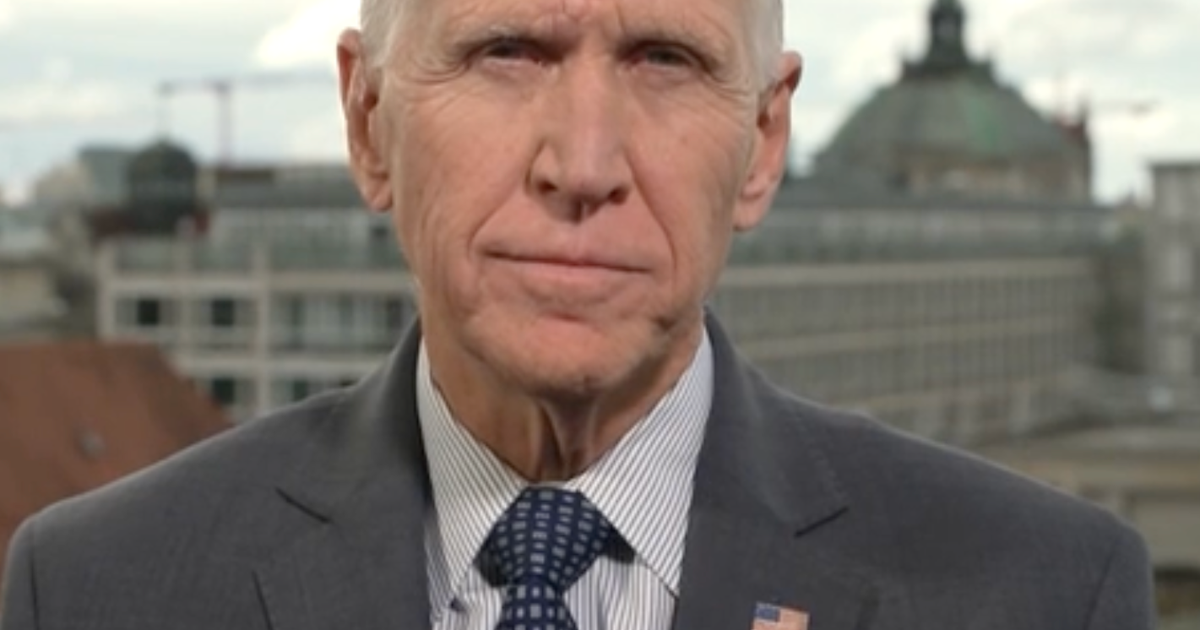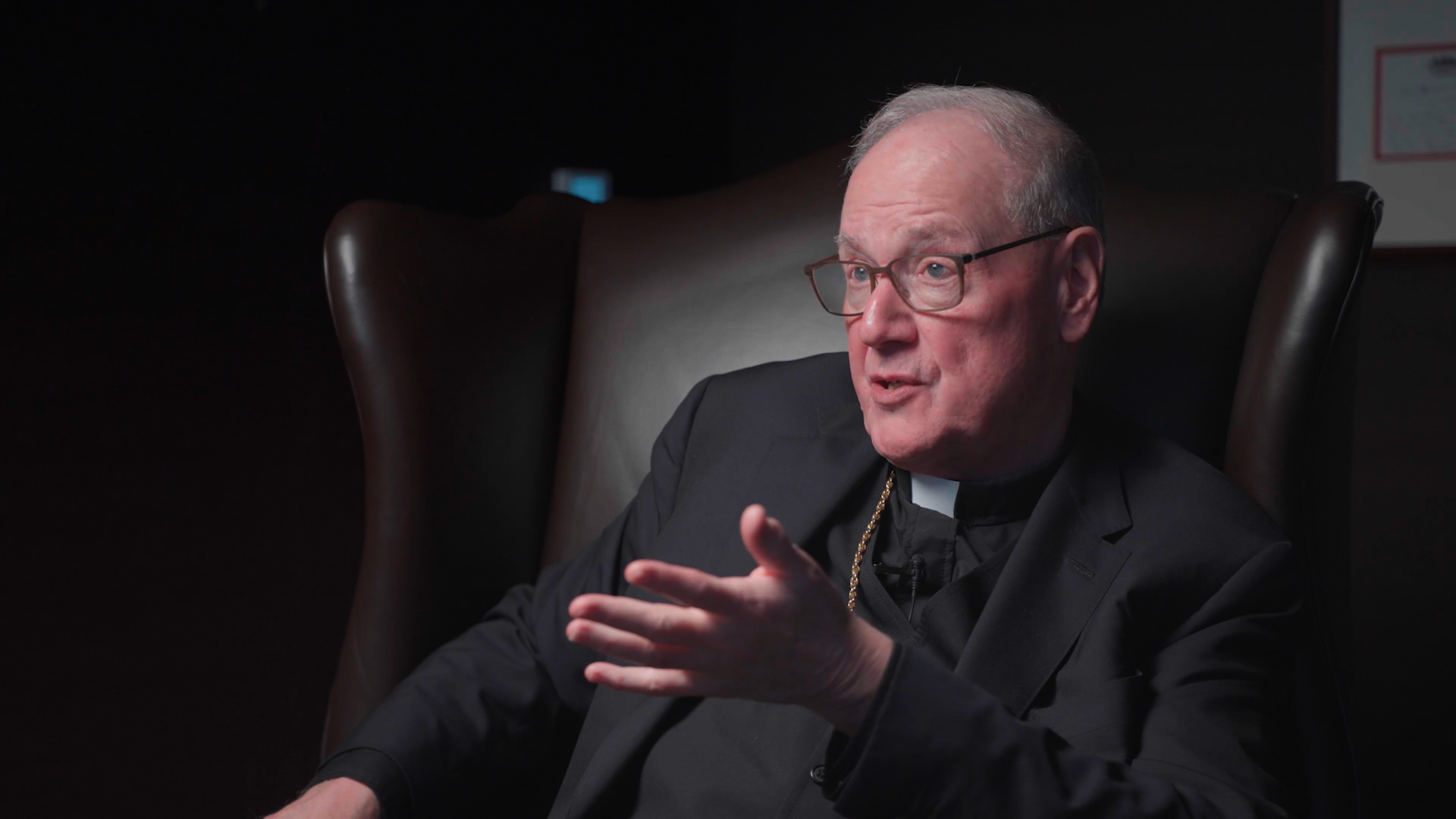Transcript: Sen. Tim Kaine on "Face the Nation," March 17, 2019
The following is a transcript of the interview with Democratic Sen. Tim Kaine of Virginia that aired Sunday, March 17, 2019, on "Face the Nation."
MARGARET BRENNAN: Late last night we spoke with Virginia Democratic Senator Tim Kaine, he had just returned from a visit to the Venezuelan border and spoke to us from Bogota, Colombia. We asked Senator Kaine about President Trump saying that he did not think white nationalism was a rising threat around the world.
SENATOR TIM KAINE: Margaret, it is on the rise and the president should call it out but sadly he's not doing that. We saw in the aftermath of the horrible attack in Charlottesville that he tried to say that the white supremacists, neo-Nazis, neo confederates there were just, you know, good people. But when you see church shootings in Charleston, a synagogue shooting in Pittsburgh, you see this hate filled manifesto of the shooter in New Zealand who is murdering Muslims, we have to confront the fact that there is a rise in white supremacy, anti-immigrant, anti-Muslim attitudes. The president uses language often that's very similar to the language used by these bigots and racists. And if he's not going to call it out then other leaders have to do more to call it out and I certainly will.
MARGARET BRENNAN: Well the president did say it was a horrible thing that happened but he said that the White Nationalism issue is just a small group of people that have very, very serious problems. What do you attribute the rise to?
SEN. KAINE: Well they have problems but- I think the president is using language that emboldens them. He's not creating them. They're out there. But you know at the same time as he was tweeting out yesterday his support for the family members in New Zealand, and that was appropriate, he was vetoing the Senate's rejection of his emergency declaration from Thursday. And he used the word invaders to characterize people coming to the nation's southern borders which was exactly the same phrase that the shooter in New Zealand used to characterize the Muslims that he was attacking. That kind of language from the person who probably has the loudest microphone on the planet Earth is hurtful and dangerous and it tends to incite violence.
MARGARET BRENNAN: I want to ask you about an exchange you had this week that seemed quite tense. You were very clearly frustrated with the acting Secretary of Defense Shanahan because you were asking why a list of military projects had not been provided to Congress that would be directly impacted by funding cuts due to re-allocation for the president's border wall.
SEN. KAINE: I'm on the Armed Services Committee. I represent Virginia. I have a child in the military so I sent a letter on February 15th to the secretary of defense and said if you're going to ransack the Pentagon's budget, tell me what projects you're going to cut or delay or eliminate. They wouldn't provide an answer. At the hearing on Thursday we-we're now going to vote that day on whether we support or reject the emergency declaration and they still hadn't answered our question, "What projects are at stake?" At the hearing he said "Oh I'll send you the list later this afternoon."
And you're right I kind of blew up at him. You're gonna give us the list after we vote? This is highly relevant to the vote about the president's emergency declaration. What projects are you going to ransack out of the Pentagon budget? Is it going to be military housing? Is it going to be trying to make our bases safer from terrorism with construction projects? Is it going to be rebuilding Tyndall Air Force Base that got blitzed in the hurricanes last fall? And they said they would give us the list after. But Margaret, to add insult to injury they had to walk that back. They don't even want to give us the list now at all we're going to have to have an override vote. I don't think the White House wants us to see the list before the override vote.
MARGARET BRENNAN: Why do you think the White House is withholding this information you say is so relevant because of an upcoming vote?
SEN. KAINE: I think there's one reason.
MARGARET BRENNAN: You're- you're connecting. You think they're trying to influence the outcome of it.
SEN. KAINE: Absolutely. This is not the Secretary of Defense in my view, this is the White House wanting to hold the list back because they worry that if senators and House members saw the potential projects that were going to be ransacked to pay for the president's wall, they would lose votes. And I think they're going to try to hide the list until that veto override vote occurs in the House and then in the Senate.
MARGARET BRENNAN: You are of course in Colombia nearby. What is a country that is really crippled in many ways economically right now, Venezuela. There are about 3 million refugees who have fled, the energy and oil industry is collapsing as is the economy there. What is it that you were going to the border to see? What did you learn?
SEN. KAINE: Well Margaret I wanted to see a couple of things. One, to support the Colombian government because their effort to provide assistance to these millions of Venezuelanos has been really momentous. But secondly, learn what more the United States can do. We have worked together actually in an accord between the administration and Congress to provide significant amounts of humanitarian aid, to- to work together, to pull together a coalition of nations.
MARGARET BRENNAN: Right. But as you know, Nicolás Maduro still is in charge of that country whether we like it or not. And these sanctions have not seemingly changed his calculus. The visas, the diplomatic isolation, what is this actually accomplishing at this point?
SEN. KAINE: Well it's- it's giving hope to Venezuelans that their fina- there may finally be some change. The question isn't whether Maduro likes it or not, the question is what the Venezuelan people want. And the National Assembly has determined that the election of President Mazur- Maduro was illegitimate. There needs to be a new- new government. So what more can we do more?
MARGARET BRENNAN: Yeah.
SEN. KAINE: More humanitarian aid, more work together to pull more nations into our coalition. The sanctions are important. They're having an effect. Sanctions are economic but they're also visa restrictions on Maduro and his cronies as they try to travel abroad. We need to give hope to the Venezuelan people that we stand with them and support them. It's a massive humanitarian crisis driven by one person, Nicolás Maduro, and the Venezuelan people are speaking out and they want something better.
MARGARET BRENNAN: Has the Trump administration whose policy you seem to support right now, have they underestimated how strong he is?
SEN. KAINE: I don't know that they've underestimated it. Look, this is- this is not easy. It's a difficult situation. And I do generally support what the Trump administration has done with one exception, I think loose talk about U.S. military action is a big mistake. One, because that's not for the president, it's for Congress. But second, the right strategy here-- there's only one person using the military against Venezuelans and it's Maduro.
MARGARET BRENNAN: Senator Kaine thank you for joining us, safe travels.
KAINE: Thanks Margaret. Absolutely.



